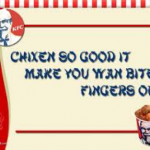Think you’ve got what it takes to be a translator? Let me tell you one thing, no matter how experienced you may be, it’s always going to be the little things that will catch you out. Even the mightiest fall at the top.
We have to start off with them false friends. You have the funny ones like brassiere (undergarments) vs brasserie (FR: bar, not bra shop!), the scandalous ones; I’d avoid saying “I have a gift for you” to a German as “Gift” means poison in German, and the embarrassing ones, literally. I have had many red faced male classmates say “estoy embarazada” instead of I am embarrassed. However if you have a client relying on you, as a translator, accuracy is key, as false friend errors can be chaotic. It was a mistake in 1980 which made Willie Ramirez quadriplegic. He was admitted into hospital in a comatose state in Florida and his parents, Spanish speakers, attempted to explain that he was intoxicado, poisoned in Spanish culture, thinking it was food poisoning. A bilingual member of staff mistranslated intoxicado as intoxicated and misinformed the doctors, leading them to believe he was suffering from a drug overdose, when in fact it was an intracerebral hemorrhage. The repercussions were disastrous. This is why you need to know the equivalences in your target language, it’s one small effort that makes a big change.
Along with cultural awareness comes cultural sensitivity, you really need to be in touch with your sensitive side. You might have understood what has been said in the source language but before you translate, double check in case anything seems odd in the translated form.
More little things
Your mistake will not be as catastrophic as this one, but it was potentially an insensitive mistranslation that lead the USA to drop an atomic bomb on Japan in 1945. In response to the threat to surrender by the Allies, the Japanese President Kantaro Zusuki responded with “mokusatsu” a word with a double meaning, one being “no comment” and the other being “we’re ignoring the contempt”. It was the latter that was wrongly sent back to the USA and 10 days later disaster struck. From a translators POV in a situation that tense, if a saying is to have a double meaning, ask for clarification.

In Poland 1977, a mistranslation left President Jimmy Carter squirming. He expressed how he wished to learn more about the Polish population’s desires for the future, which was wrongly interpreted as “he was happy to grasp Poland’s private parts”. Surely this blunder could have been avoided if the interpreter had been a bit more tactful. Would such statement be made by such a professional person at such an important event?
Humour. Unique and different in every culture, hence why when it comes to translating it, unless you have shared knowledge of both cultural references, this is risky business. You have your classic jokes, such as “Qué hace un pez en el agua? Nada” which needs no explanation for Spaniards but clarification for foreigners. Nevertheless, many companies have landed themselves in hot water because of poor translations due to a lack of cultural knowledge at the time of translating amusing slogans

Familiar with KFC’s “Finger lickin’ good!”? This is light humour, as you have make the most of every mouthful. Yet when this campaign was taken to China, it became a more cannibalistic “We’ll bite your fingers off”. I would not be surprised if the customers kept their distance.
Mistranslations can also be offensive… In British and American culture, if you are round your grandma’s house making a coffee, you may ask “Got milk?” (informal and not so grammatically correct) It was the Dairy Association that used this as their slogan, but in Mexico it was mistranslated as “Are you lactating?” You can imagine how uncomfortable female customers felt.

Overall I hope I’ve made a point in saying its best to give the little things a bit of love. I’d rather you didn’t land yourself in a spot of bother on your way to becoming a professional translator. In working environments such as here in CBLingua, we really do pay attention to the slightest detail and we very much prioritise the little things as they do matter.






